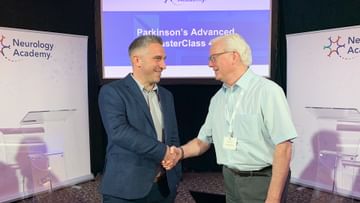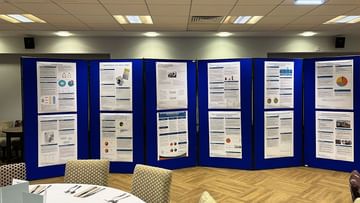Data published by Wilmington Healthcare, Parkinson’s Concierge and Parkinson’s Academy highlight the impact of the COVID-19 Pandemic and NHS contact to people with Parkinson’s
KnowledgeThe COVID-19 pandemic has made a dramatic difference to the way in which people with Parkinson’s (PwP) see their Parkinson’s team. A new summary of data by healthcare intelligence provider Wilmington Healthcare, Parkinson’s Concierge and the transformative educator Parkinson’s Academy has highlighted the huge impact COVID-19 has had on people with Parkinson’s and Parkinson’s services.
The data reveals:
- Telephone consultations increased by 239% in response to the dramatic drop in face to face out-patient appointments
- Elective admissions were reduced by 57%
- Emergency admissions reduced by 18.6%
Clinical teams have responded well in the pandemic by significantly increasing their contact with patients over the phone but both elective admissions and emergency admissions were reduced.
In England, emergency admissions in PwP have continually increased over the prior three years so what has happened to these in the pandemic? Are these hidden emergencies?
According to HES data for the 2019/20 year there were 77,318 emergency hospital admissions for Parkinson’s which cost the NHS £301 million. The average cost of an emergency admission was £3,889 and the average length of stay was 10.3 days. Emergency admissions were for bladder infections (£26 million), pneumonia (£19m) falls (£18m) and sepsis (£15m). Did PwP avoid seeking help?
Sue Thomas, CEO of Wilmington Healthcare Consulting, said:
“Our latest report shows that the problems that have occurred in the pandemic and the way that NHS staff have risen to the challenge of providing innovative virtual ways to see their patients but the real concern is the drop in both planned and emergency as this might have had unintended and life changing consequences. For PwP who require complex therapy like carbidopa/ levodopa or deep brain stimulation there may only be a short window during which they can be effective. Does this mean some individuals may have lost their opportunity to have therapy in the pandemic?
PwP frequently experience complications like chest or urine infections which need to be treated promptly – have they avoided seeking crisis support to their detriment? Will this lack of intervention rebound and affect them in the longer term?”
Charlotte Allen & Russ Bradford, Co-Founders of Parkinson’s Concierge said:
“We feel that the sharp decline in A&E attendance from people with Parkinson’s since the COVID-19 epidemic and subsequent lockdown restrictions, is due from a number of factors. One reason is the fact that many people with Parkinson’s are fearful, scared and anxious of the increased risk of exposure to infection, alongside their existing Parkinson’s symptoms. There was also great uncertainty what category people with Parkinson’s fell into at the start of the pandemic: “are we vulnerable or should we be classed as extremely vulnerable?” they said.
Daiga Heisters, Interim Head of Parkinson’s Academy said:
“As the report shows, the pandemic has required innovation to change how Parkinson’s teams support their patients. Parkinson’s Academy has been with these teams every step of the way, providing an opportunity for learning through our series of webinars, so that health professionals have felt supported and ready for the challenges ahead. More webinars are planned for later in the year, supporting services to further adapt and learn from positive practice around the country, and to deliver the more complex therapies in novel ways”.
About Parkinson’s Concierge
Parkinson’s Concierge a Global Community of Parkinson’s People, and has access to a community of 55,000 followers, all keen to support each other, and make a difference. They are experts in Parkinson’s as they live with the condition.
About Parkinson’s Academy
Parkinson’s Academy is a sub-group of Neurology Academy (NA), an innovative education provider for clinicians, specialist nurses and professions allied to medicine. The training programme focuses on both disease management and service transformation. Each priority condition is led by an Academic Faculty of practicing clinicians who operate within a separate disease focused Academy.
About Wilmington Healthcare and Wilmington plc
Wilmington Healthcare within the UK, incorporates HSJ, Interactive Medica and OnMedica. A part of Wilmington plc whose group companies help clients turn data into actionable business benefit, Wilmington Healthcare focuses on working with its customers to turn its high quality healthcare data into meaningful intelligence to support their business objectives and the improvement of healthcare. For further information, visit www.wilmingtonhealthcare.com.
Wilmington plc focuses on three key knowledge areas: Risk & Compliance, Professional, and Healthcare. Wilmington’s businesses enable professionals and their organisations to perform better by providing quality, relevant and reliable information, education and networking. For more information on Wilmington plc visit www.wilmingtonplc.com.
Journalists
Contact details for interviews:
- Charlotte.allen@parkinsnonsconcierge.com: 07788239899
- SarahGillett@neurologyacademy.org: 0114 327 0230
- Sue.thomas@wilmingtonhealthcare.com 07801143122
Related articles
'The things you can't get from the books'
Parkinson's Academy, our original and longest running Academy, houses 22 years of inspirational projects, resources, and evidence for improving outcomes for people with Parkinson's. Led by co-founder and educational director Dr Peter Fletcher, the Academy has a truly collegiate feel and prides itself on delivering 'the things you can't get from books' - a practical learning model which inspires all Neurology Academy courses.


